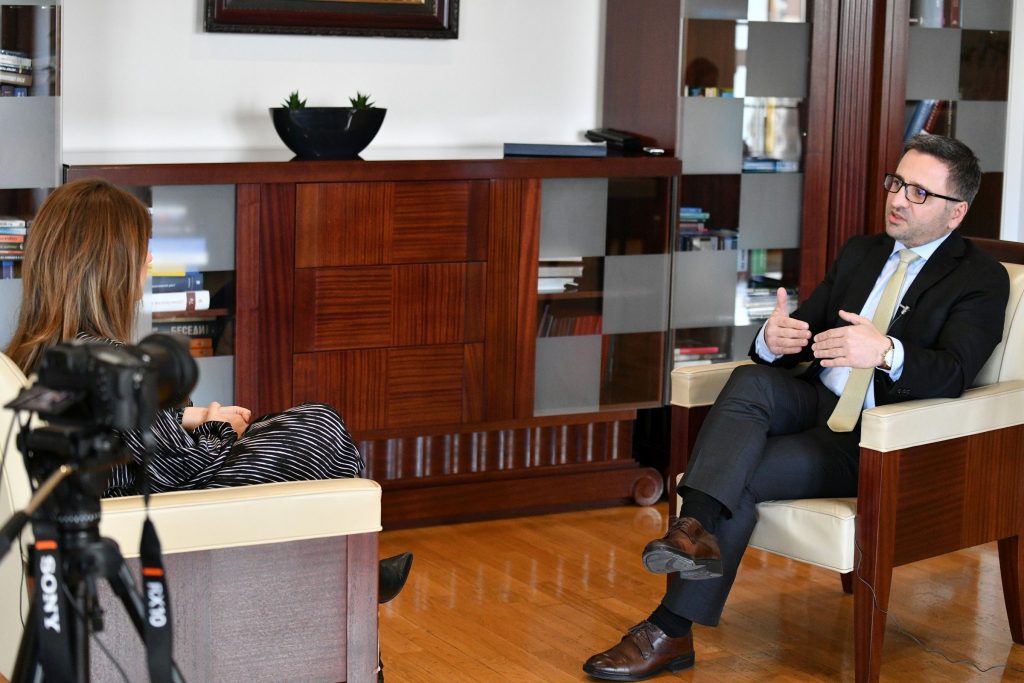10th February 2022, Skopje – Increasing the minimum wage, as a measure, which is part of the government program, does not only imply one-time increase of the minimum wage, but also provides a systemic and sustainable solution offered with the new methodology.

“Raising the minimum wage from Denar 15,200 to Denar 18,000 implies its one-time increase to the end of elevating its ratio in the average wage. Moreover, what is crucial is that it is a matter of a systemic solution with the new methodology on harmonizing the minimum wage with 50% of the average wage growth and 50% of the CPI rate”, Minister of Finance, Fatmir Besimi, said in his interview for MRT “Agenda 35” show.
He underlined that it is expected to provide for productivity increase, as well as boosted competitiveness of the economy. It is a measure complementing the measures undertaken to support the business sector and the investments, as well as research and development, strengthening the human capital and the competitiveness, thus the economic growth rates too.
During the interview, he pointed out that the main challenges this year to affect the growth projections are the energy crisis which commenced in the second half of 2021, especially in Q4, and the prices on the European markets which have been reflected in our country as well.
“As during the pandemic, when we created and implemented sets of supporting measures providing for GDP decline to be mitigated by 4.2% in 2020, we have been proactive as regards the energy crisis as well. In order to prevent any disruption and to ensure regular supply of electricity, as well as to soften the regulated market price, EUR 90 million was allocate in December 2021, with around EUR 80 million being projected during this year. One of the measures included reduction of VAT on electricity, as well as prices lower than the production costs offered by Power Plants of Macedonia, in order to prevent higher increase of the electricity price for the households. Other measure includes support to the vulnerable categories by receiving financial assistance for electricity consumption, covering more than 3,500 households and 9,000 retirees, including the energy poverty measure which has been implemented since the energy crisis has been declared”, Minister Besimi pointed out, adding that the measures have been undertaken to help the economy overcome the energy crisis.
He also said that crisis period requires immediate and urgent actions so as to save the economy and mitigate the effects, with the foundation of fiscal sustainability being set at medium term.
“We incorporated it last year in 2021 Budget by including a five-year framework. Budget deficit of 8.2% in 2020 was reduced to 5.4% in 2021, although projected at 6.3% of GDP. Budget deficit this year is projected at 4.3%, dropping to 2.2% by 2026. This implies lower budget deficit and higher economic growth rates, contributing to reduction of the public debt. Thereby, economic growth is projected to accelerate in the medium term. We projected 4.1% (or higher) growth in 2021, while growth in 2022 is projected at 4.6%, exceeding 5% annually in the coming years”, Minister of Finance Fatmir Besimi said.
















